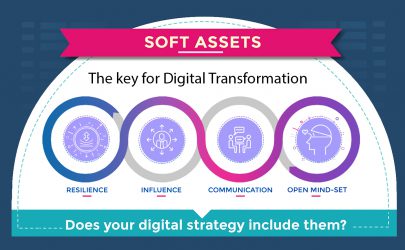It awakens both hopes and fears in equal doses, but we can´t ignore it. Artificial Intelligence (AI) is among us and promises to revolutionize every single business we know.
“AI is like the new electricity,” predicted Javier Zamora, Associate Professor of the Information Systems Department of IESE Business School (Spain), in an event last year. “It is a general purpose technology, which means that it has the ability to radically change the industry. It lets us do things that were not possible before,” he highlighted.
From the corporate communications area we should see it not as a threat, but as an ally. What can it do for us?
“We have the opportunity to define AI”
“AI does not need to define us or replace us; we have the opportunity to define AI in the context of corporate communications, which includes both external and internal communications,” writes Anthony Petrucci, Senior Director of Corporate Communications & Public Affairs at HID Global, a technology company, in an article in Forbes.
The expert lists some ways AI could be helpful:
- Make real-time analysis, reports and trend assessments.
- Deliver better metrics for corporate communications.
- Customize communications.
- Train more people on the best practices of communications.
- Enable faster responses to crises. AI bots will be programmed to assist crisis communication leaders – and they won’t be swayed by emotions.
“AI is leaving us more room for creativity”
Robots currently still have to be content with performing so-called 3D jobs – tasks that are dumb, dirty and dangerous. But not for long, says Clarissa Haller, Head of Corporate Communications in Siemens.
Haller mentions a recent study published by McKinsey that shows that, by 2030, 375 million people worldwide will have to learn a new profession. That’s every third employee.
“If we use AI wisely, it can open up very exciting possibilities, particularly for those of us in corporate communications. Because artificial intelligence relieves us of simple tasks that can be standardized – leaving us more room for creativity and the really important tasks,” she explains.
At Siemens, Haller states they´re using AI to optimize their company-wide database for films and photographs, duty that demanded lots of human hours to tag content and provide copyright documents for every file. They are also using algorithms to address specific individuals with customized content.
“Coffee Mug is our personalized newsfeed for regularly supplying employees with information tailored to their personal needs. It gives employees the opportunity to sign up to receive a daily update with exactly the kind of information that they need for their work. To make this service possible, AI filters through large amounts of content from diverse Siemens platforms to find the exact resources that are particularly relevant for each individual. In the process, it considers, for example, the employees’ reading habits and preferences,” says Haller.
Rather than hinder our task of communicating, it seems AI will enrich our internal and external conversations. What do you think?



